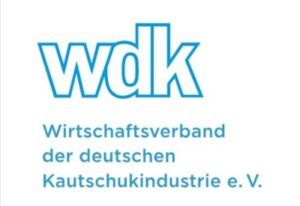wdk cooperates with Together for Sustainability
Berlin, Germany – The German Rubber Manufacturers’ Association (wdk) has been committed to responsible procurement practices for raw materials and services in the rubber industry for many years. To advance the implementation of this goal, the industry association is now cooperating with Together for Sustainability (TfS), an international non-profit initiative that raises CSR standards across chemical companies and their suppliers.
“Thanks to Together for Sustainability, we are now a big step closer to a comparable and reliable carbon footprint calculation,” said Boris Engelhardt, wdk Secretary General, today in Frankfurt/Main.
The background to this is the medium-term CO2 neutrality of all areas of life and products that is being sought by law at German and European level. This includes production sites and products of the rubber industry. Reliable calculation of the CO2 footprint in production and the end product, as well as measures to reduce it, are therefore high-priority tasks for rubber processing companies. However, they also present companies with major challenges due to their immense complexity. Since 2021, the wdk has therefore been offering its member companies the working group “Carbon Footprint Experience Exchange” to provide assistance in this area.
A major challenge is the provision of reliable and comparable figures for calculating the Scope 3 carbon footprint. To this end, the wdk has issued a recommendation for the Product Carbon Footprint (PCF) guideline from TfS. This is because only uniform global standards in supply chains ensure transparency and thus enable all parties involved – suppliers, processors, and OEMs – to reliably evaluate sustainability practices and optimize them if necessary. And it is precisely this implementation of such standards that TfS has set its sights on.
Engelhardt sees the TfS guideline as a suitable tool for achieving the necessary global availability of comparable data. “We hope that TfS, with its strong member companies, will create acceptance among the major clients – especially the automotive manufacturers – with regard to the input data for our own carbon footprint calculations. Ideally, the TfS guideline should become the standard for product carbon footprint calculations for all our suppliers.”
Dr. Veronika Beer, Head of Sustainable Development at wdk, adds, “Raw materials have a significant share in the carbon footprint of rubber products. It is usually higher than the contribution to emissions made by the production. Reliable and comparable CO2 data on raw materials are therefore an important basis for determining and improving the carbon footprint of rubber products.”
Alessandro Pistillo, Co-Chair of the TfS Scope 3 GHG emissions programme says “Having the PCF Guideline recognised as a drop-in standard for PCF determination with the rubber industry provides evidence of the versatility of the TfS methodology in the chemical sector. The recommendation of the PCF Guideline by wdk marks a major step towards the establishment of a cohesive PCF standard for chemical, plastics and rubber raw materials across multiple downstream application segments, contributing to the achievement of transparency and comparability in GHG emission accounting.”

